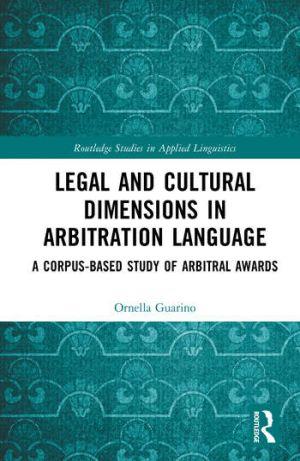
This book examines the interplay of legal traditions and linguistic practices and its influence on arbitral awards, opening new avenues of research on this underexplored area of legal discourse.
The volume analyses data from a corpus of English-language arbitral awards, understood as the final decisions handed down by arbitrators in a legal dispute, compiled via Jus Mundi, an AI-powered legal search engine. Featuring texts from across various legal and cultural contexts, the book highlights corpus linguistic methodologies to elucidate linguistic patterns, syntactic structures, and stylistic choices. Guarino calls readers’ attention not only to the impact of globalization and cultural diversity on legal language in arbitration but also the emergence of distinct styles and modes of reasoning even as legal practices globally converge. In so doing, the volume underscores the possibilities offered by the cultural shift toward openness in arbitration for refining legal standards, fostering collaborative knowledge, and expanding the study of legal discourse more broadly.
This book will appeal to scholars interested in language and the law, legal discourse, corpus linguistics, language and communication, and international business studies.